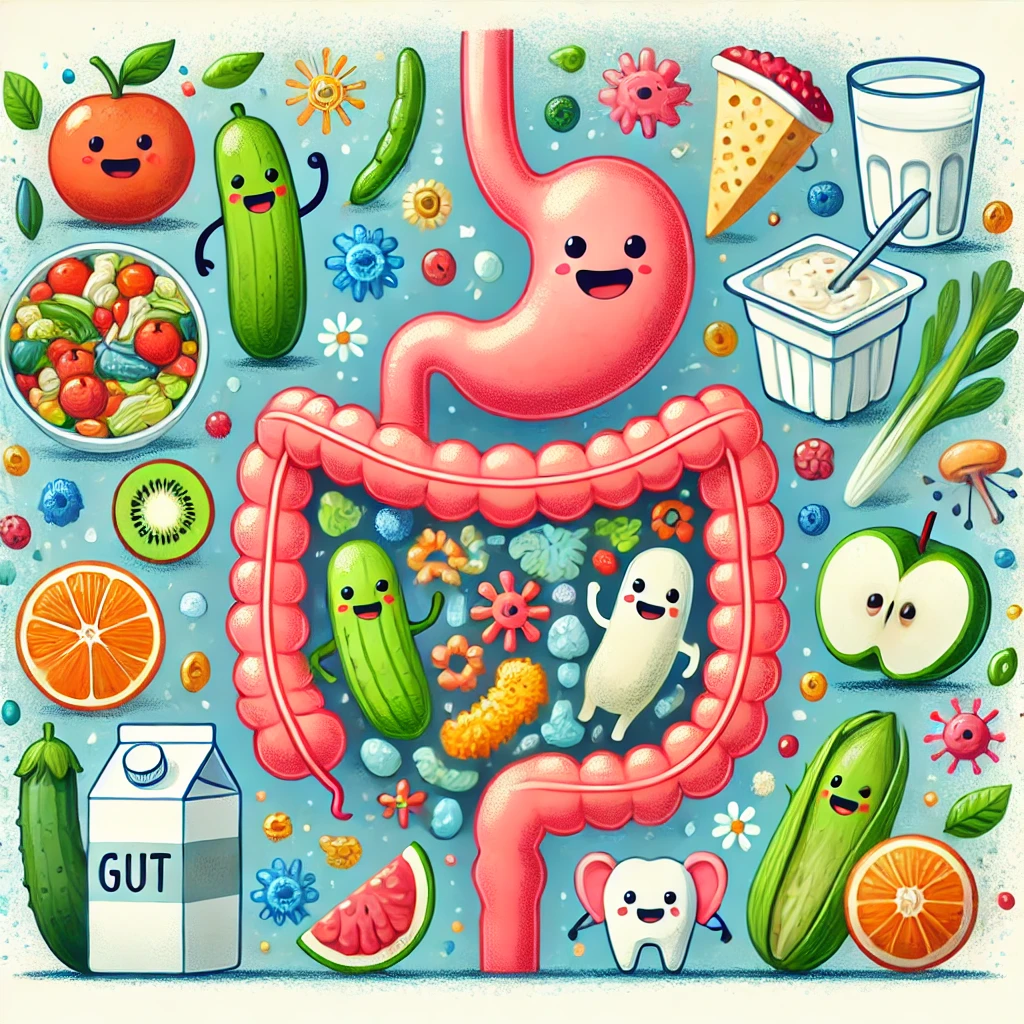Address
14 -7311 Minoru Blvd
Richmond, BC, Canada V6Y3P3
Work Hours
Monday to Friday: 7AM - 7PM
Weekend: 10AM - 5PM
Address
14 -7311 Minoru Blvd
Richmond, BC, Canada V6Y3P3
Work Hours
Monday to Friday: 7AM - 7PM
Weekend: 10AM - 5PM

Maintaining a healthy balance of gut bacteria is key to overall well-being. Our gut is home to trillions of bacteria that play essential roles in digestion, immune function, and even mental health. However, an imbalance in these bacteria, known as dysbiosis, can lead to various health problems, including digestive disorders, immune deficiencies, and even mood changes. Here are some science-backed tips to help you balance your gut bacteria and promote a healthy digestive system.
A varied diet is crucial for fostering a diverse microbiome. Different strains of gut bacteria thrive on different foods, so consuming a wide range of plant-based foods ensures that your gut bacteria stay diverse and balanced. Fiber-rich foods, in particular, are vital as they act as prebiotics, feeding beneficial bacteria.
Probiotics are live beneficial bacteria that can help restore the natural balance of your gut. These “good” bacteria can be found in fermented foods or taken as supplements. Consuming probiotics can improve digestion, boost your immune system, and reduce symptoms of gastrointestinal disorders.
Excessive consumption of sugar and artificial sweeteners can harm your gut bacteria. High-sugar diets encourage the growth of harmful bacteria and yeast, leading to imbalances. Artificial sweeteners like aspartame and sucralose can negatively affect beneficial bacteria, leading to metabolic issues and digestive discomfort.
Drinking plenty of water is essential for maintaining a healthy balance of bacteria in your gut. Hydration aids digestion and the absorption of nutrients, which in turn supports a healthy gut lining and promotes the growth of beneficial bacteria.
Prebiotics are a type of fiber that nourishes the beneficial bacteria in your gut. They are often found in fruits, vegetables, and whole grains, but if you’re not getting enough from your diet, prebiotic supplements can help maintain a healthy gut environment.
Chronic stress can negatively impact your gut bacteria, leading to an imbalance. The gut and brain are closely linked, and stress can disrupt the gut’s ability to function properly, contributing to digestive issues like irritable bowel syndrome (IBS).
Physical activity not only benefits your heart and muscles but also positively impacts your gut bacteria. Studies have shown that regular moderate exercise can increase the diversity of your gut microbiome and improve overall digestive health.
While antibiotics are necessary to treat certain bacterial infections, they can also disrupt the balance of gut bacteria by killing both harmful and beneficial bacteria. This can lead to long-term gut health issues, including an increased risk of digestive problems.
In addition to probiotics and prebiotics, certain supplements can help improve the balance of gut bacteria and overall digestive health. At Natriviga, we offer premium gut health supplements like Heliclear IgY that promote a healthy gut microbiome by targeting harmful bacteria while supporting beneficial ones.
Balancing your gut bacteria is essential for maintaining a healthy digestive system, boosting immunity, and promoting overall well-being. By incorporating a varied, fiber-rich diet, probiotics, regular exercise, and managing stress, you can cultivate a healthy microbiome. For additional support, consider Natriviga’s premium gut health supplements to optimize your digestive health naturally.
If you’re looking for more information on how our products can help you achieve better gut health, explore our range of supplements at natriviga.ca.